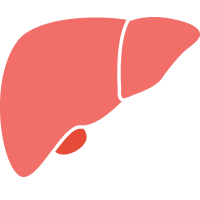
Hepatic Cell News
Hepatic Cell News is an online resource covering the top research on hepatocytes and liver diseases.
Hepatic Signal Transducer and Activator of Transcription-3 signaling Drives Early-Stage Pancreatic Cancer Cachexia via Suppressed Ketogenesis
[Journal Of Cachexia Sarcopenia And Muscle] Researchers establishes a direct link between skeletal muscle homeostasis and hepatic metabolism. Dietary and anti-inflammatory interventions that restored ketogenesis may be a viable preventative approach for pre-cachectic patients with pancreatic cancer.
Monitoring Hepatocellular Carcinoma Using Tumor Content in Circulating Cell-Free DNA
[Clinical Cancer Research] Scientists evaluated the utility of tumor content in circulating cell-free DNA for monitoring HCC throughout its natural history. They included 67 hepatitis B virus-related HCC patients, of whom 17 had paired pre- and post-treatment samples, and 90 controls.
Notch1 Regulates Hepatic Thrombopoietin Production
[Blood] Investigators noted thrombocytopenia in mice with hepatic Notch1 deficiency, and so investigated thrombopoietin production and other features of platelets in mice. They found that the liver ultrastructure and hepatocyte function were comparable between control mice and Notch1-deficient mice.
ER Stress Signaling at the Interphase Between MASH and Hepatocellular Carcinoma
[Hepatology] The authors propose that chronic endoplasmic reticulum stress is a common transversal factor contributing to the transition from liver disease to HCC. Interventional strategies to target the unfolded protein response in HCC as cancer therapy are also discussed.
Viral Hepatitis Is a Silent Killer. It Can’t Be Eliminated If It Isn’t Tracked
[Stat] By all accounts, the US should be able to eliminate viral hepatitis, but instead new cases are on the rise, largely due to the opioid epidemic and increasing viral hepatitis transmission through injection drug use.
Canada Likely to Miss WHO’s Hepatitis C Elimination Target, Research Shows
[University of Waterloo] Canada will not reach the original World Health Organization's (WHO) target of eliminating the Hepatitis C virus by 2030 and lags in comparison to other developed countries, a new study led by researchers at the University of Waterloo has found.
Loss of SREBP-1c Ameliorates Iron-Induced Liver Fibrosis by Decreasing Lipocalin-2
[Experimental & Molecular Medicine] Scientists examined the role of sterol regulatory element-binding protein (SREBP)-1c in nonalcoholic steatohepatitis (NASH) and the regulation of lipocalin-2 (LCN2) gene expression. Wild-type and SREBP-1c knockout mice were fed a high-fat/high-sucrose diet, treated with carbon tetrachloride, and subjected to LCN2 overexpression.
A Spatiotemporal Atlas of Mouse Liver Homeostasis and Regeneration
[Nature Genetics] This integrative study dissected in detail the molecular gradients controlling liver cell function, systematically defining how gene networks were dynamically modulated through intercellular communication to promote regeneration.
Phenotypes of MASLD-Associated Hepatocellular Carcinoma
[Clinical Gastroenterology And Hepatology] Metabolic dysfunction-associated steatotic liver disease (MASLD), including metabolic dysfunction-associated steatohepatitis, has emerged as the most common chronic liver disease worldwide and a leading cause of HCC.
Blue Faery Awards Liver Cancer Research Grant
[Blue Faery (PR Newswire, Inc.)] Blue Faery: The Adrienne Wilson Liver Cancer Association announced the annual Blue Faery Award (BFA) for Excellence in Liver Cancer Research. Primary liver cancer, also known as HCC, is the third leading cause of cancer deaths worldwide. Blue Faery created the award to recognize medical professionals who do innovative HCC research.
‘Mini Liver’ Will Grow in Person’s Own Lymph Node in Bold New Trial
[Nature] A person has received an experimental treatment for the first time that, if successful, will lead them to grow an additional ‘miniature liver’. The procedure, developed by the biotechnology firm LyGenesis, marks the beginning of a clinical trial designed for people whose livers are failing, but who have not received an organ transplant.
Diagnostic Performance of PIVKA-II in Identifying Recurrent Hepatocellular Carcinoma following Curative Resection: A Retrospective Cohort Study
[Scientific Reports] A multicenter, retrospective, and observational study was conducted. During the overall follow-up of five years, HCC patients who had curative resection were monitored every three months in the first year post-surgery and every six months thereafter if no recurrence occurred.
The publications featured in Hepatic Cell News are expertly selected by our in-house editorial team from high impact, peer-reviewed academic journals. We cover areas including the culturing and characterization of hepatocytes, liver stem cells, and the pathogenesis of conditions such as liver cirrhosis and hepatocellular carcinoma. Additionally, we provide the latest updates on broader news, upcoming events, and job postings to keep the global liver research community connected!

 Cancer Stem Cell News
Cancer Stem Cell News Cell Therapy News
Cell Therapy News Dermal Cell News
Dermal Cell News Endothelial Cell News
Endothelial Cell News ESC & iPSC News
ESC & iPSC News Extracellular Matrix News
Extracellular Matrix News Hematopoiesis News
Hematopoiesis News Hepatic Cell News
Hepatic Cell News Human Immunology News
Human Immunology News Immune Regulation News
Immune Regulation News
 Intestinal Cell News
Intestinal Cell News Mammary Cell News
Mammary Cell News Mesenchymal Cell News
Mesenchymal Cell News Muscle Cell News
Muscle Cell News Neural Cell News
Neural Cell News Organoid News
Organoid News Pancreatic Cell News
Pancreatic Cell News Prostate Cell News
Prostate Cell News Pulmonary Cell News
Pulmonary Cell News
